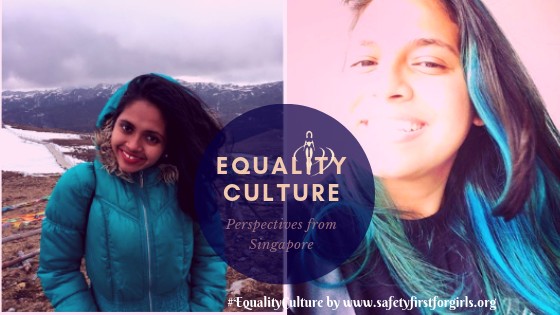We can overcome racism
By Kumsa Yuya via UN Volunteers
Whether
or not we are conscious of it, from birth we are being socialized.
This
process of socialization tells us what is valuable, important and beautiful.
Although not inherently problematic, often these attributes deemed valuable in
society are attached to immutable characteristics that have been assaulted
through history.
These
characteristics include things like skin color, size of facial features, and
behaviours that are a presumed consequence of having these features. Borne out
of these historical circumstances is a hierarchy that is clearly discernable no
matter where we are in the globe. The result of these arbitrary categorizations
is the institutionalization of discrimination; a caste system is thus accepted as
nothing more than unquestionable truth.
Although
this is the reality for many marginalized groups throughout the world, my story
will focus on what I faced and learned as a result of these experiences being
an African Canadian. Although Canada is distinguished in the eyes of many from
the United States, it is undeniable our histories are intertwined for better
and for worse.
Slavery
– and the creation of racist stereotypes that were necessary in order to launch
this institution persist hundreds of years after the fact. Racism is pervasive.
It manifests itself in both pronounced and nuanced ways not only
interpersonally, but also through policy and discourse.
Black
Canadians come face to face with racism early in their lives. My personal
experience with racism is as early as the third grade where I can vividly
remember being called a “nigger” by classmates at recess.
Although
I am doubtful these children knew the implications of their words, it is still
troubling that at such a young age the social categorization of individuals has
been so readily learned by them.
They
knew who belonged to what group, and where they stood socially because of
certain physical characteristics. I had never heard the term before, but I
would eventually learn it was derogatory and said only in an attempt to
eviscerate the dignity of the person it is hurled toward.
As it had helped
cement the position of these students above myself in our social hierarchy,
being labeled as inferior had certain implications on my self perception that
would only magnify as I matured and began to understand discrimination more
deeply.
The
result of this interaction and ones similar to it were me regularly questioning
my place in society and inherent ability to achieve certain goals. Children
have the most expansive imaginations in our society, but the imposition of
these barriers is not often viewed from the perspective of the target.
Once
racialized, thoughts of what one can not
achieve become more prevalent than the endless possibility that was imagined
before this process taints the mind.
Thoughts become self deprecating as beauty
and intelligence become synonymous with all of the features you are devoid of.
Once negativity has been imposed by the outside world onto an individual long
enough, self imposition of these destructive self beliefs is inevitable and for
some irreparable.
Learning
about the circumstances that have put this system into place is liberating. As
similar events began to accumulate over the years, I rarely thought about race
until after high school, although I was often aware of it.
University
acted as the main catalyst for introspection and the analysis of socialization
and the arbitrary nature of what is deemed to be social currency. Identification
with these negative stereotypes and limitations slowly began to dissolve, and I
was left with a blank slate that was at first scary, but later this new found
autonomy became intoxicating.
Although I was able to replace these old
limitations with many new and positive beliefs, it would be disingenuous to
claim that the effects of past and present racism have disappeared.
They
are embedded into your personality, and much like smog, is always there to
cloud interactions and be ingested by those who remain unaware of the damaging
effects.
I am also not foolish enough to think this self realization has
resulted in external perceptions of myself to be any more positive. It is this
unfortunate paradox that racialized individuals must live with; being forced to
deal with and work through racism and develop self appreciation as a result of
being thrust into a subordinate position in society.
Conversely,
however those that have not had to deal with a particular type of adversity
remain unaware and often unsympathetic to the plight of those dealing with
these issues every day, allowing these structures to be upheld. It requires the
group facing this type of discrimination to accept the current circumstances of
society and develop tools to effectively deal with these unique challenges, and
is something I had to learn.
A
lesson I’ve learned from these experiences is the importance of compassion in
humanity. It allows us to relate emotionally to one another and thus spur us
into action to dismantle structures that reinforce inequality and alienation.
Throughout history, resistance to discrimination has risen contemporaneously
with racism, even when lives were at stake. Although it may not be fair, as
part of a marginalized group it is your social responsibility to continue to
challenge the status quo.



Comments
Post a Comment